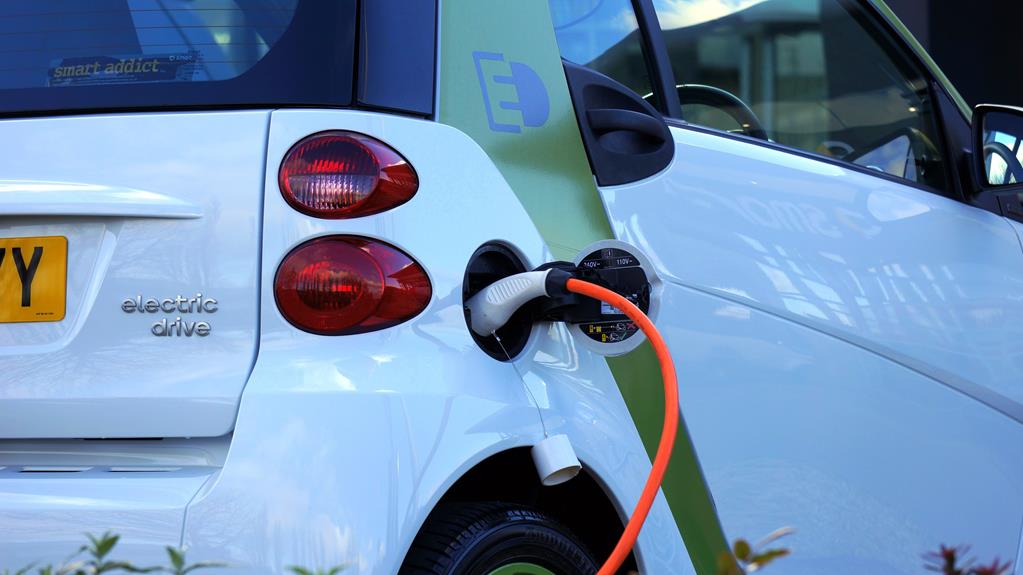What Happens When A Car Battery Fully Dies
Have you ever wondered what happens when your car battery fully dies? Well, it's time to uncover the truth behind this theory.
What Happens When A Car Battery Fully Dies
When your car battery reaches its final moments, it's not just a matter of inconvenience. There are a multitude of effects that occur, and some of them may surprise you. From the impact on electrical systems to potential damage to the battery itself, the consequences of a fully dead car battery can be quite significant.
What Happens When A Car Battery Fully Dies
So, let's dive into the details and explore what happens when your car battery reaches its final breath.
What Happens When A Car Battery Fully Dies
Effects on Electrical Systems
What Happens When A Car Battery Fully Dies
When your car battery fully dies, it can have significant effects on the electrical systems in your vehicle. The first thing you might notice is that all the lights on the dashboard start flickering or become completely dim. This happens because the battery is responsible for providing power to the electrical components in your car, including the lights. Without a functioning battery, these components can't receive the necessary power to operate properly.
What Happens When A Car Battery Fully Dies
Another effect of a dead battery is the loss of power to the radio and other audio systems in your car. You might find that the radio no longer turns on or that the sound quality is very poor. This is because the battery is needed to power the audio system, and without it, the system can't function as intended.
What Happens When A Car Battery Fully Dies
Additionally, a dead battery can also cause issues with the power windows and locks in your car. You might find that the windows are no longer able to roll up or down, or that the locks don't respond when you try to unlock or lock your car. This is because these systems rely on the battery to provide the necessary power for operation.
What Happens When A Car Battery Fully Dies
Difficulty Starting the Vehicle
If your car battery fully dies, you may experience difficulty starting the vehicle. When this happens, it can be frustrating and make you feel stranded. But don't worry, you're not alone! Many car owners have faced the same issue and there are solutions available to get you back on the road.
Here are four things to consider if you're having trouble starting your vehicle:
- Check the connections: Make sure the battery cables are securely attached to the terminals. If they're loose or corroded, it can affect the flow of electricity and prevent your car from starting.
- Jump-start the battery: If you have access to jumper cables and another vehicle, you can try jump-starting your battery. This will provide a temporary boost of power to get your engine running.
- Use a battery charger: If you have a battery charger, you can connect it to your dead battery and let it recharge. This process may take a few hours, but it can revive your battery and get your car started.
- Call for roadside assistance: If you're unable to jump-start or recharge your battery, it may be time to call for professional help. Roadside assistance services can come to your location and provide the necessary assistance to get your car started.
Loss of Power to Accessories
To address the issue of loss of power to accessories, check if the battery cables are securely connected to the terminals. When your car battery fully dies, you may experience a complete loss of power to the various accessories in your vehicle. This can be frustrating, especially if you rely on these accessories for your daily commute or road trips with friends and family.
However, before you start panicking, it's important to first check the battery cables. Make sure they're tightly connected to the terminals, as loose or corroded connections can prevent the power from reaching the accessories.
If the connections are secure, it's possible that the battery itself is beyond repair and needs to be replaced. In this case, it's recommended to consult a professional mechanic or an automotive expert to assess the situation and guide you through the replacement process. They can help you choose a suitable replacement battery that meets the requirements of your vehicle and ensure that it's installed correctly.
Impact on Engine Performance
The fully dead car battery can significantly impact the performance of your engine. When your car battery dies completely, it can lead to various issues that affect how your engine functions. Here are four ways a dead car battery can impact your engine performance:
- Difficult or delayed starting: With a dead battery, your engine may struggle to start or may take longer to start than usual. This is because the battery provides the initial power needed to start the engine, and without it, the engine may have trouble turning over.
- Reduced power output: A dead battery can cause a decrease in the power output of your engine. This can result in reduced acceleration and overall sluggishness while driving.
- Diminished fuel efficiency: When your car battery is dead, it can cause your engine to work harder, leading to increased fuel consumption. This means you may experience a drop in fuel efficiency, resulting in more frequent visits to the gas station.
- Increased strain on other components: A dead battery can put additional strain on other parts of your car's electrical system, such as the alternator. This can result in potential damage to these components, leading to further performance issues with your engine.
Potential Damage to the Battery Itself
When your car battery fully dies, it can potentially cause damage to the battery itself. This is because leaving your battery fully discharged for an extended period of time can lead to irreversible sulfation, which occurs when the sulfuric acid in the battery reacts with the lead plates and forms lead sulfate crystals. These crystals can build up on the lead plates, reducing their ability to hold a charge and decreasing the battery's overall capacity.
In addition to sulfation, a completely dead battery can also experience internal corrosion. When the battery isn't being used, the acid inside can start to eat away at the internal components, leading to damage and potential leaks. This corrosion can further decrease the battery's performance and lifespan.
To prevent potential damage to your battery, it's important to ensure that it's regularly charged and maintained. If you notice that your battery is frequently dying or struggling to hold a charge, it may be time to replace it. Regularly testing your battery's voltage and using a battery maintainer can also help prolong its life and prevent damage.
Taking care of your car battery is crucial to ensure its longevity and avoid potential damage. By following these tips, you can help keep your battery in good condition and reduce the risk of it fully dying.
Frequently Asked Questions
How Long Does It Take for a Car Battery to Fully Die if Left Unused?
If you leave your car battery unused for a long time, it can take several weeks or even months for it to fully die. Lack of use causes the battery to lose its charge gradually.
Can a Completely Dead Car Battery Be Recharged?
Yes, you can recharge a completely dead car battery. Just connect it to a charger and let it replenish its energy. Remember to take proper safety precautions and follow the manufacturer's instructions.
Will a Dead Car Battery Affect the Transmission or Other Mechanical Parts of the Vehicle?
A dead car battery might cause issues with the transmission or other mechanical parts. It's important to address the battery problem promptly to ensure the smooth functioning of your vehicle and prevent further damage.
Can a Dead Car Battery Cause Damage to the Alternator?
Can a dead car battery damage the alternator? Yes, when a car battery fully dies, it can cause the alternator to work harder, potentially leading to overheating and failure. Regular maintenance can help prevent this.
Are There Any Signs or Symptoms That Indicate a Car Battery Is About to Die?
If your car battery is about to die, there are signs to watch for. Look out for dim headlights, difficulty starting the engine, and a weak electrical system. These indicators can signal a dying battery.
Conclusion
As the car battery fully dies, a sense of darkness envelops the vehicle. Electrical systems cease their dance, leaving the once vibrant dashboard eerily dim. The engine, once a powerful force, now struggles to come alive. Accessories lose their life force, leaving the driver disconnected from the world outside.
And all the while, the battery itself suffers, its life force drained, awaiting a jolt of energy to bring it back from the brink.

